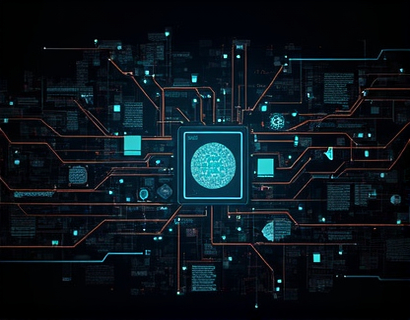AI-Driven Mental Health Companion: Transforming Access to Mental Health Services for Diverse Audiences
The integration of Artificial Intelligence in mental health support has ushered in a new era of personalized and accessible care. An AI-powered chatbot designed to deliver specialized insights into mental health services and industry trends represents a significant advancement in this field. This technology ensures that accurate and safe content is provided to a wide array of users, including children, students, educators, and healthcare professionals, all within a secure and engaging environment.
Understanding the Need for AI in Mental Health
The demand for mental health services has surged in recent years, driven by increased awareness and a willingness to seek help. However, the traditional models of delivering mental health support often fall short in terms of accessibility and personalization. AI-driven solutions address these gaps by offering real-time, personalized insights and resources. For professionals, this means staying updated with the latest industry trends and best practices, while for patients and students, it means gaining access to reliable information and support.
Specialized Insights for Professionals
Healthcare professionals, including psychologists, psychiatrists, and counselors, can benefit greatly from an AI-driven mental health companion. This tool can provide up-to-date information on treatment methodologies, research findings, and industry standards. By integrating data from various sources, the AI can offer tailored recommendations based on the latest evidence, helping professionals make informed decisions in their practice. Additionally, the chatbot can assist in case management, offering insights into patient progress and suggesting appropriate interventions.
Continuing Education and Professional Development
For ongoing professional development, the AI can curate a list of relevant courses, workshops, and conferences. It can also help professionals stay compliant with regulatory requirements by providing updates on certification and licensure processes. The chatbot can facilitate networking opportunities by connecting professionals with peers and experts in the field, fostering a collaborative environment that enhances professional growth.
Empowering Students and Children
Students and children are particularly vulnerable to mental health issues, yet often face barriers in accessing appropriate support. An AI-driven mental health companion can serve as a safe and approachable resource for this demographic. The chatbot can be designed with a child-friendly interface, ensuring that content is age-appropriate and easy to understand. It can provide educational materials on mental health topics, coping strategies, and information on where to seek help.
Parental Involvement and Support
Parents and guardians play a crucial role in the mental health of children and students. The AI can offer guidance on recognizing signs of mental distress, effective communication techniques, and resources for family therapy. By empowering parents with knowledge and tools, the AI helps create a supportive environment that encourages open dialogue about mental health.
Engaging and Educational Content for All
The AI chatbot can generate a variety of content types to cater to different learning styles and preferences. Text-based information can be supplemented with infographics, videos, and interactive quizzes to make learning more engaging. For educators, this means having a versatile tool to incorporate into lesson plans, enhancing the educational experience for students.
Mental Health Enthusiasts and General Public
For individuals who are simply interested in mental health, the AI can provide general information, debunk myths, and offer tips for maintaining mental well-being. It can also direct users to local resources and support groups, making it easier for the general public to engage with mental health topics.
Ensuring Accuracy and Safety
One of the most critical aspects of an AI-driven mental health companion is ensuring the accuracy and safety of the information provided. Content verification is a key feature, where the AI cross-references information with reputable sources to ensure reliability. This is particularly important when dealing with sensitive topics and providing guidance to vulnerable populations.
Child-Safe Features
For children and students, the chatbot incorporates strict safety protocols. The content is filtered to exclude any inappropriate or harmful information. The AI is programmed to recognize and respond appropriately to queries from young users, providing reassurance and guidance without overwhelming them. Parental controls can also be implemented to monitor and manage the interaction experience.
Building Trust and Credibility
Trust is paramount in mental health support. The AI chatbot can enhance credibility by clearly indicating when it is providing information based on user input versus offering general advice. Transparency about the AI's capabilities and limitations helps users understand the context of the information they receive. Additionally, partnerships with mental health organizations and professional associations can further validate the AI's recommendations and resources.
Feedback and Continuous Improvement
The AI system should be designed to learn from user interactions, continuously improving its responses and recommendations. Feedback mechanisms allow users to rate the helpfulness of the information provided, which the AI uses to refine its algorithms. This iterative process ensures that the chatbot remains a valuable and trustworthy resource over time.
Conclusion
The integration of AI in mental health support represents a transformative step forward in making mental health resources more accessible, personalized, and reliable. For professionals, students, children, and the general public, an AI-driven mental health companion offers a secure and engaging platform to explore and understand mental health services and industry trends. By prioritizing accuracy, safety, and user engagement, such a tool can significantly contribute to the well-being of diverse audiences.










































